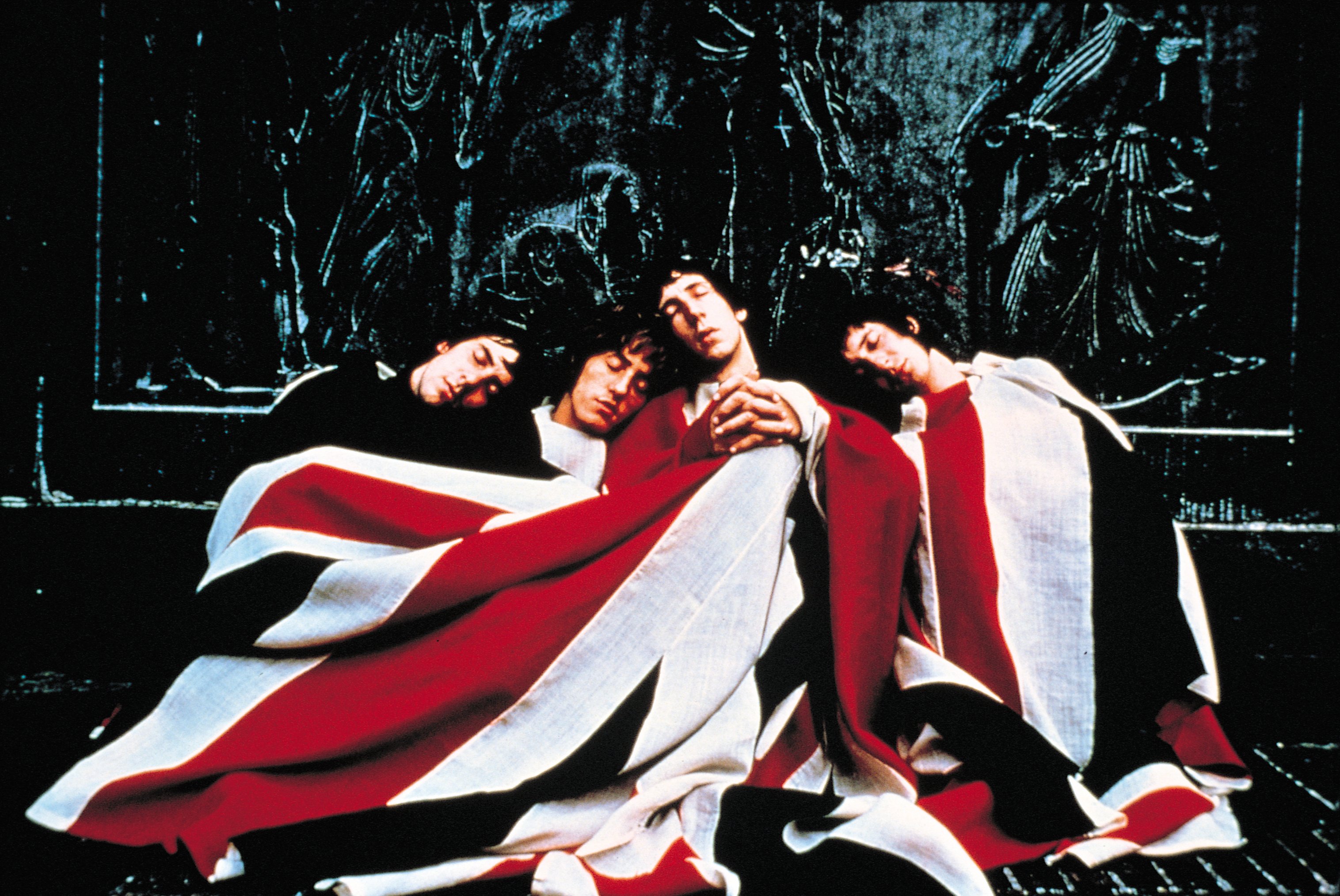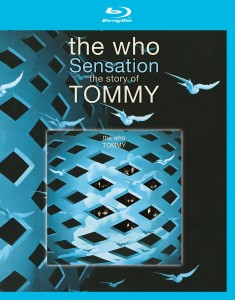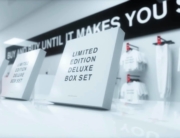BY MIKE METTLER
“I felt the band, and myself as a composer, deserved one big, last splurge,” says Pete Townshend at the outset of The Who – Sensation – The Story of Tommy (Eagle Vision). And the key to getting there, he adds, was to do “an album as a piece of art.” Enter Tommy, the groundbreaking 1969 rock opera that raised the album-as-artform bar set by The Beatles’ Sgt. Pepper’s Lonely Hearts Club Band just 2 years earlier. Released on Blu-ray and DVD on March 11, Sensation chronicles the trajectory of a band that catapulted from a buzzworthy pop act to an international, well, sensation, thanks to the depth of Townshend’s tale of a deaf, dumb, and blind kid who did quite a bit more than sure play a mean pinball.
On Sensation, Townshend, singer Roger Daltrey, and other Who principals thoughtfully dissect Tommy and its ongoing impact. Daltrey notes there was always something “mathematical” about the chemistry of four distinct individuals who somehow managed to always come together sonically. And speaking of sonics, Townshend admits that engineer Damon Lyon-Shaw’s decision to bring Daltrey’s vocals to the forefront of the final session mix was the right call, because his interpretation of young Tommy’s story needed to be the album’s linchpin. The best aural example of that decision comes when Daltrey, shown sitting in front of a mixing console, moves some faders to isolate his impassioned “see me, feel me, touch me, heal me” mantra from the overall mix, which lets you hear just what Townshend did when he got to the studio the day this passage was recorded. Once Townshend took it all in, he knew there was no question about who he was going to enable to sing those key words — key words the songwriter had initially envisioned singing himself.
And if you’re wondering when The Who truly kicked it all into sonic overdrive, their May 1969 debut of Tommy at Ronnie Scott’s Jazz Club in London, in a ferocious set literally driven by its cacophonous volume level, embedded (to use Daltrey’s word) the passionate, vengeful animus that became The Who’s live signature from that point forward.
Bonus footage consists of The Who performing about half of Tommy in black-and-white on the Beat Club on September 27, 1969 in Bremen, Germany, along with a few interview segments with Townshend interspersed in the midst of the proceedings (complete with German subtitles). Be sure to keep an eye on the antics of the ever-playful Keith Moon and marvel at bassist John Entwistle’s, er, bone-jarring outfit.
No doubt about it: Sensation will take you on an Amazing Journey into discovering the universal yet individual enlightenment that comes from immersing yourself in The Who’s indelible classic.
And if you want to get even deeper into Tommy, there’s no better way to do so than by diving into The Who: Tommy Super Deluxe Edition box set, especially when it comes to the 5.1 mix on Disc 3.
As I said in my Reference Tracks review of the amazing Tommy box over on soundandvision.com, the 96/24 presentation of Tommy in surround sound is a revelation of breadth and precision that serves as the aural blueprint for how producers and engineers should approach all future historical 5.1 remixes. Bob Pridden and Richard Whittaker’s 5.1 mix, presented via Universal’s relatively new High Fidelity Pure Audio Blu-ray format, often places the listener in the position Daltrey would take onstage, and you’ll instinctively feel yourself turning and facing each band mate depending on the song’s vibe. Once you accept literally becoming Tommy himself in the mix, you won’t be jarred by having Moon’s drums emanate mostly from the surround left like a recurring percussive devil perched just over your left shoulder.
Tommy, can you hear me? Listening to you in 5.1, I truly get the music.
Tags: Beat Club, Blu-ray, Bob Pridden, Damon Lyon-Shaw, High Fidelity Pure Audio Blu-ray, John Entwistle, Keith Moon, Pete Townshend, Richard Whittaker, Roger Daltrey, Ronnie Scott, The Who, Tommy









[…] Mike Mettler is the former editor-in-chief of Sound & Vision, and he interviews artists and producers about their love of music and high-resolution audio on his own site, The SoundBard. An extended version of this review appears on www.soundbard.com. […]